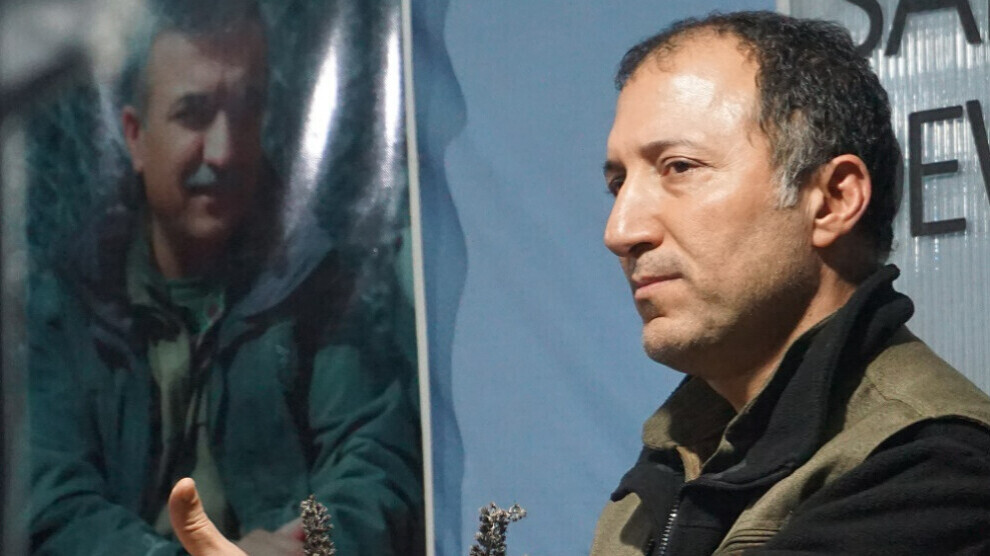PKK pays tribute to Dr. Hüseyin Akdağ
The Kurdish revolutionary Dr. Hüseyin Akdağ died in an airstrike after almost thirty years of fighting. The PKK expresses its condolences to his family and the people of Kurdistan.
The Kurdish revolutionary Dr. Hüseyin Akdağ died in an airstrike after almost thirty years of fighting. The PKK expresses its condolences to his family and the people of Kurdistan.

The Kurdistan Workers' Party (PKK) Committee "Solidarity with the Families of the Martyrs" announced the death of Dr. Hüseyin Akdag.
Akdağ, born in 1972 in Kozluk. His real name was Selman Bozkur and he had joined the PKK in 1992 in Amed. He was killed in an airstrike by the Turkish army on 5 June 2021.
In its obituary, the PKK committee addresses the importance of those who died in the Kurdish liberation struggle. The martyrs are immortal and represent an insurmountable barricade of resistance for the Turkish state. “The fascist AKP/MHP government is brutally attacking everywhere in Kurdistan. However, we believe that our brave martyrs will show our struggle the way to victory.”
The committee said that “the PKK is a meeting place for people who succeed in representing a hope for the values of humanity against the way of life determined by capitalist modernity. The fallen are the leaders of the struggle to crush the Turkish state's concept of genocide.”
The PKK Committee expresses its condolences to the Bozkur family and the people of Kurdistan.
The PKK said that Hüseyin Akdag was born in Hezo in 1972 and grew up in Amed. He studied medicine at Dicle University and came into contact with the Kurdish liberation movement during his studies. In 1992 he joined the PKK and was active in frontline work in Kurdistan and Turkey until 1995. In 1996 he was at the PKK Academy and was trained by Abdullah Öcalan. After that, he went to the mountains as a guerrilla fighter and stayed in the regions of Zap, Gare, Zagros and Xinêre as well as in South Kurdistan.
The PKK committee describes Hüseyin Akdağ as a "distinguished member of Kurdistan's freedom struggle. His attitude in life was strong, his camaraderie deep. He managed to be a comrade on the line of women's liberation and his understanding of Rêber Apo's [Abdullah Öcalan] ideology was deep. He had a great sense of responsibility and for him it was a principle to be successful in every task. With his life and struggle he left a great legacy."